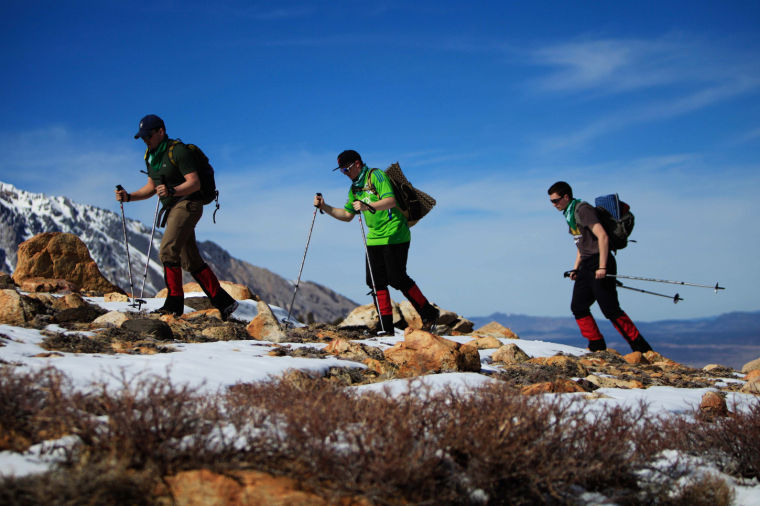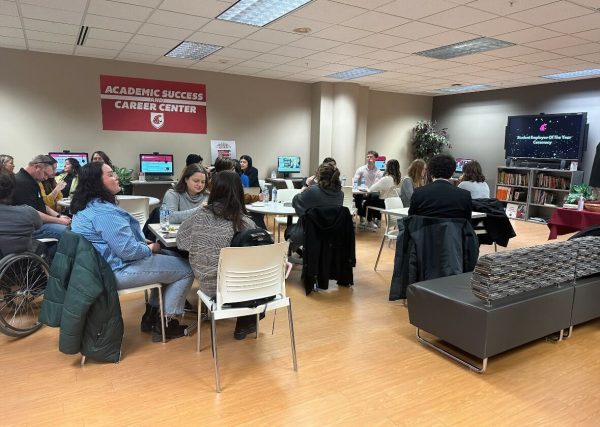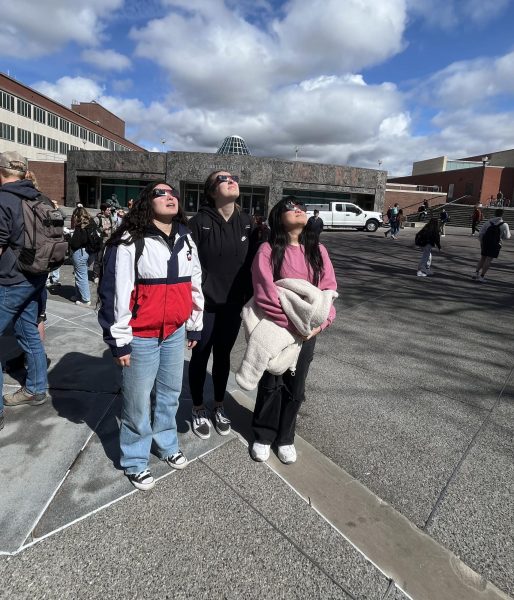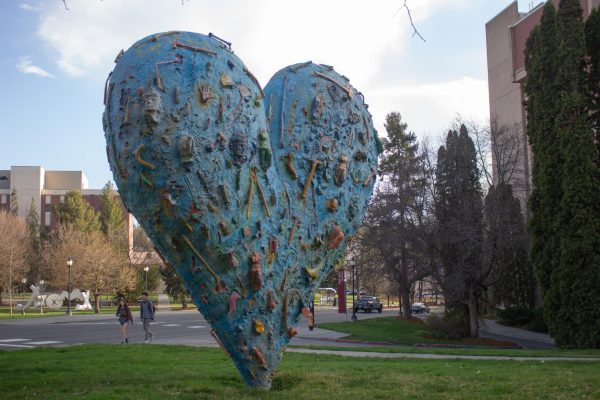Alternatives to Cabo
CCE Alternative Spring Break members participate in a service project in Death Valley, March 11, 2013.
February 10, 2014
For students unenthusiastic about their spring break prospects, the Center for Civic Engagement (CCE) might have a solution.
The CCE has partnered with several philanthropic groups, including Habitat for Humanity and Hearts in Motion, to offer alternative spring break experiences to WSU students.
The week-long program, called Alternative Spring Break, will give students the chance to immerse themselves in other cultures while earning service hours and, in some cases, course credit.
Destinations will include cities in Washington and Nevada as well as locations in India and Guatemala, where students will build houses and assist children recovering from cleft lip surgery.
“Students are instantly making new life-long friends with different people,” said Erin McIlraith, the marketing and communications coordinator for the CCE. “And professors have the chance to teach students about social and environmental issues through the civic engagement projects they work on together.”
Program coordinator Ashlie Grilz said the CCE will provide transportation and at least two meals per day, which will make Alternative Spring Break one of the more economically feasible and popular trips offered to students.
For students who can’t afford plane tickets, the CCE created another program, called “Spring to Action, Break for Change,” which uses volunteers to provide bus transport to locations around Washington and parts of Oregon.
Lynne Carpenter-Boggs, an associate professor in the department of crop and soil sciences, said the trip is a great learning experience, comparing it to an extended lab session. Students who participate will be eligible for one credit of Soils 499.
Volunteers in 2012 visited Pacific Natural Foods Company in Portland, where they learned about the production of all-organic foods. Others visited the Spokane area, where they tended to gardens and learned about local agriculture.
Although these trips have taken place for several years, junior marketing major Matthew Ringor said he didn’t know anything about them.
“They seem pretty cool, though, especially the one that is just outside Las Vegas where (volunteers) also go rock climbing on the side of a canyon,” Ringor said. “Spend time volunteering and reward yourself with a trip to Vegas at the end.”
Other trips have taken students to post-Katrina New Orleans, where McIlraith and others helped restore the Ninth Ward, an area damaged by severe flooding.
The experience was both interesting and meaningful, she said.






















